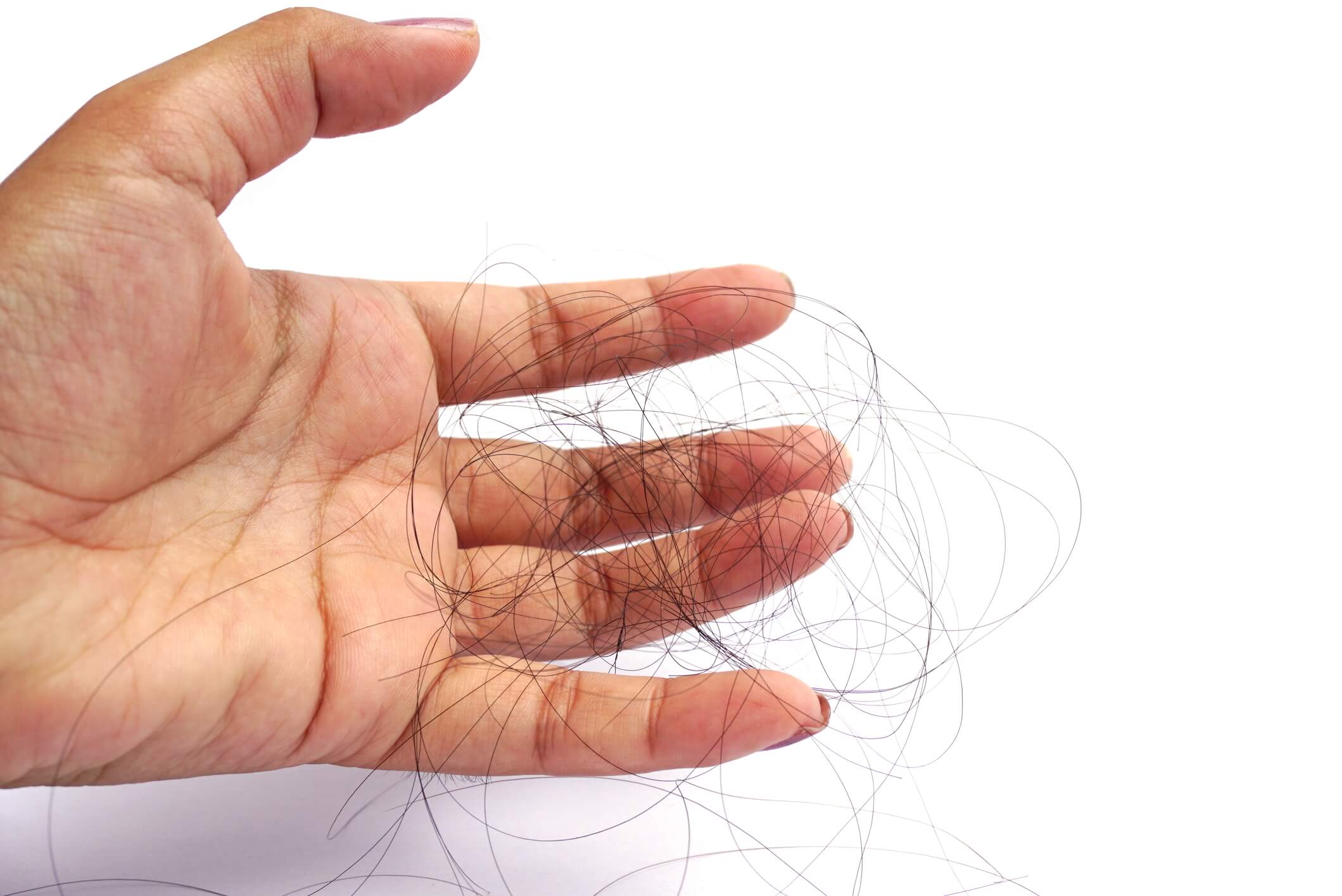Hair loss can be a significant concern for many people, especially following surgery. A common question is whether anesthesia, often used in various medical procedures, directly contributes to hair loss. While it is unlikely that anesthesia is the sole cause, several factors related to surgery and the body’s reaction, such as telogen effluvium, may lead to temporary hair loss.
Understanding the relationship between anesthesia and hair loss requires a closer look at how surgery, stress, and post-operative changes in the body affect hair follicles and the hair growth cycle. Many patients undergoing surgeries report experiencing hair thinning or hair shedding after their procedures, and it’s essential to know how these changes occur and what can be done to mitigate them. This article will explore the potential link between anesthesia and hair loss and offer guidance on treatment options, diet, and recovery tips to help restore hair growth.
Understanding Telogen Effluvium and Hair Loss
Telogen effluvium is a condition characterized by the shedding of hair due to stress on the body, whether physical, emotional, or medical. This form of hair loss occurs when a patient experiences a significant stress event, such as surgery or reactions to certain medications, which can have side effects that exacerbate hair loss. These events lead to more hair follicles than usual entering the resting phase, also known as the telogen phase. In this phase, hair follicles stop producing new hairs, resulting in hair shedding.
The telogen phase is a normal part of the hair cycle, where hair naturally rests and sheds to make room for new hair growth. However, in extreme stress, such as that experienced during surgery or from the side effects of drugs and medications, many follicles may enter this resting phase simultaneously, leading to noticeable hair loss. Patients who experience telogen effluvium after surgery may notice significant hair shedding around two to three months after the procedure, with hair typically falling out in clumps when washing or brushing.
This condition is usually temporary. Once the body recovers from the stress event and adjusts to the position of post-surgery healing, hair follicles resume their normal function, and hair growth gradually returns. However, it’s essential to address the underlying factors contributing to the condition, such as reactions to medication or side effects, to ensure proper recovery. Working with your healthcare team is one of the best ways to gather the correct information and manage post-operative hair loss healthily and informally.
Anesthesia and Hair Loss: The Connection
Anesthesia is essential for pain management during surgeries, but it can indirectly trigger hair loss. After surgery, many patients notice thinning hair, especially a few months post-operation. This condition, known as anesthesia-induced telogen effluvium, occurs when the body reacts to surgery, medications, and the anesthetic itself, causing hair to enter the resting phase of the hair cycle. This phase is typically temporary, but the combination of surgery and anesthesia-related stress on the body can disrupt average hair growth, leading to temporary hair shedding.
The body’s response to anesthesia, surgical trauma, blood flow changes, and other medications contribute to this hair loss. Studies conducted by MDs and researchers have explored the effects of various types of anesthesia on hair loss, especially general anesthesia, which tends to have a more systemic impact on the body. While anesthesia itself may not be the direct cause, the side effects of surgery and recovery increase the likelihood of telogen effluvium. On the other hand, local anesthesia has shown fewer associations with hair loss, but the overall surgical experience and recovery periods can still affect the hair follicles.
In addition, the location of the surgery and where pressure is applied during the procedure can influence how much hair loss occurs, particularly in specific areas around the scalp. Sometimes, hair loss may be seen near the incision site or in areas affected by surgical pressure. For many, the hair loss is temporary, and once the body recovers, hair gradually resumes its normal growth phase. Ensuring that the right approach is taken post-surgery, including managing nutrient deficiencies and stress, can help facilitate hair regrowth.
Patients must work closely with their medical team to identify the best ways to manage post-operative hair loss. Receiving a proper diagnosis and maintaining a balanced diet rich in nutrients like iron and protein can support hair recovery. Keeping the mind at ease by staying informed and knowing that this condition is usually temporary can alleviate a lot of the anxiety associated with post-surgery hair loss.
Factors Affecting Post-Surgery Hair Loss
Aside from anesthesia, several other factors can contribute to hair loss after surgery. Understanding these factors can help patients take proactive steps to prevent or minimize hair shedding during recovery.
- Surgical Stress: One of the most significant contributors to post-operative hair loss is the stress on the body during surgery. This stress, whether from the physical trauma of the operation or the emotional toll, can disrupt the hair growth cycle, pushing more hair follicles into the telogen phase. As a result, hair shedding occurs.
- Medications: Besides anesthesia, other medications used during and after surgery can impact hair health. Some medications may cause changes in hormone levels or disrupt blood circulation to the scalp, further contributing to hair thinning and shedding.
- Nutrient Deficiencies: During surgery, the body uses up vital nutrients such as vitamins and minerals, including iron, which are essential for maintaining healthy hair. Surgery can deplete the body’s stores of these nutrients, leaving the hair follicles without the support they need for hair growth.
- Blood Flow: Reduced blood supply to the scalp during surgery, combined with prolonged periods of immobility, can also contribute to hair loss. Proper blood circulation is necessary to deliver oxygen and nutrients to hair follicles, and any disruption in this process can weaken the follicles and cause hair thinning.
- Hormonal Changes: Surgical procedures may trigger hormonal changes in the body, particularly in women. For example, childbirth, surgery-related stress, and hormone-altering medications can all cause fluctuations in hormone levels, which are directly linked to hair growth.
- Genetics: Individuals with a genetic predisposition to alopecia or hair thinning may be more susceptible to experiencing hair loss after surgery. For these individuals, surgery can act as a trigger, exacerbating an existing genetic condition.
- Telogen Phase Duration: The duration of the telogen phase can also vary from person to person. Those with longer telogen phases may experience more prolonged hair shedding after surgery before new hair growth begins.
How to Mitigate Hair Loss After Surgery
While it’s natural for patients to worry about hair loss after surgery, some steps can be taken to mitigate the effects and support healthy hair growth during recovery.
1.Focus on Nutrition
A balanced diet rich in essential nutrients is critical for maintaining hair health. After surgery, the body requires additional nutrients to recover, and ensuring that you consume enough protein, iron, vitamins, and minerals can help promote hair growth. Incorporating nutrient-dense foods such as leafy green vegetables, lean proteins, nuts, seeds, and whole grains provides the building blocks your hair needs to thrive. Post-surgical recovery often places stress on the body, and this stress can act as a stressor that leads to hair thinning. Addressing potential nutrient deficiencies, like iron deficiency, through supplements prescribed by an MD or healthcare provider can be crucial for preventing further hair loss.
Specific evidence suggests that nutrient deficiencies or post-surgical stress may even lead to more severe conditions such as alopecia areata, where the immune system mistakenly attacks hair follicles, resulting in patches of hair loss. In rarer cases, patients may develop pressure alopecia, where prolonged pressure on the scalp during surgery causes temporary hair loss. Fortunately, pressure alopecia is usually temporary, and hair regrowth occurs once the pressure is relieved. Patients need to monitor their symptoms and consult their doctors for guidance on using specific products like hair growth supplements or multivitamins to address these issues and avoid potential side effects from improper use.
Post-operative stress plays a significant role in hair loss. Emotional and physical stress from surgery can trigger hair thinning, especially if the patient already has pre-existing illness or health concerns. While hair loss, such as telogen effluvium oralopecia areata, can be alarming, they are often temporary. Patients can mitigate this stress through relaxation techniques, such as meditation, and ensure they follow their healthcare provider’s advice for a proper recovery. Staying informed about the latest news on post-operative hair loss will help patients take proactive steps to restore their hair and overall well-being.
2. Hair Care and Maintenance
During the recovery phase, handling your hair with care is essential to avoid further damage to the hair follicles. Avoid hairstyles that pull tightly on the hair, such as ponytails or braids, as these can strain weakened follicles and cause additional hair loss. The scalp, especially in areas affected by surgery or post-surgical hair shedding, is often more sensitive during this period. Protecting the hair follicles and ensuring minimal irritation can help the recovery process.
Gentle hair care practices, such as using mild shampoos and conditioners, avoiding excessive heat styling, and minimizing harsh chemicals, are essential to protect your hair during the shedding phase. Stress, including elevated stress hormones like cortisol, can negatively impact hair health by affecting the anagen phase of the hair cycle, where active cell division within the hair follicle promotes growth. Ensuring that your body, particularly your organs, is recovering correctly from the operation is essential for restoring hair growth cycles. Keeping stress levels under control will support overall well-being and reduce the chance of further hair loss.
For some patients, dermatologists may recommend topical treatments such as minoxidil to promote hair regrowth and reduce hair thinning. This treatment works by stimulating the hair follicles and improving blood flow to the scalp area affected by hair shedding. Before starting any new treatment, it’s advisable to review options with your doctor to ensure that they align with your recovery plan and do not interfere with other post-surgical treatments.
3.Stress Management
Since stress is a significant trigger for telogen effluvium, managing stress levels can be critical in reducing post-surgical hair loss. Engaging in stress-relief activities such as meditation, yoga, deep breathing exercises, or even hobbies that help you relax can positively impact your overall health and your hair. It is also essential to address any potential inflammation that may arise during the operation, as this can affect the recovery of hair follicles.
Additionally, consulting with research institutions or professionals about effective hair loss treatment options, such as finasteride, may provide further assistance. It is crucial to give your body the necessary time to heal and recover after surgery. Resting and allowing your body to rebuild its strength is vital for a successful recovery, including allowing your hair follicles to return to their normal growth cycle. The condition of your skin and overall health plays a significant role in this process, emphasizing the importance of holistic recovery.
4.Consultation with Healthcare Providers
If you’re concerned about post-surgical hair loss, it’s crucial to consult with your doctor or a dermatologist who specializes in hair restoration. They can assess your condition, determine whether you’re experiencing telogen effluvium, and recommend treatment options based on your needs.
If hair loss persists beyond the typical recovery period or if the shedding is severe, your healthcare provider may explore options such as a Neograft hair transplant or other advanced hair restoration techniques. These procedures can provide a permanent solution for patients who experience long-term hair loss after surgery.
Other Factors to Consider
In addition to the post-operative factors discussed, it’s important to consider lifestyle habits that can influence hair health both before and after surgery. Ensuring that your blood pressure is well-managed, staying hydrated, and maintaining a healthy lifestyle can all contribute to a successful recovery and minimize the risk of hair loss.
Exercise and Hair Growth
Exercise is often recommended as part of a healthy recovery plan after surgery. Regular physical activity can improve blood circulation, delivering oxygen and nutrients to the scalp and hair follicles. However, following your doctor’s advice regarding the intensity and type of exercise that is safe for you during the recovery phase is essential. Overexertion too soon after surgery may lead to further stress and hinder the recovery process.
Hair Growth Cycles and Patience
Finally, it’s important to remember that hair growth occurs in cycles, and patience is often required when dealing with post-surgical hair loss. Hair follicles go through multiple phases of growth, and after shedding occurs, it may take several months for new hair to emerge.
During this time, it’s essential to stay consistent with any treatments your doctor recommends, whether it involves topical solutions, oral medications, or hair restoration procedures. Hair regrowth takes time, and while the results may not be immediate, the proper care and treatment can eventually restore your hair to its full potential.
Conclusion: Take Action to Restore Your Hair
The relationship between anesthesia and hair loss is complex and involves factors like surgery stress, medications, and nutrient deficiencies. While anesthesia-induced hair loss is typically temporary, understanding the causes and available treatments can help manage the condition effectively.
If you’re dealing with post-surgical hair thinning, consult your doctor and explore treatments tailored to your needs. Neograft Hair Restoration Orange County provides a permanent solution for those struggling with hair loss, allowing you to regain a full head of hair. Following the steps outlined in this article, you can take proactive measures to minimize hair loss and promote healthy hair growth after surgery.















Recent Comments